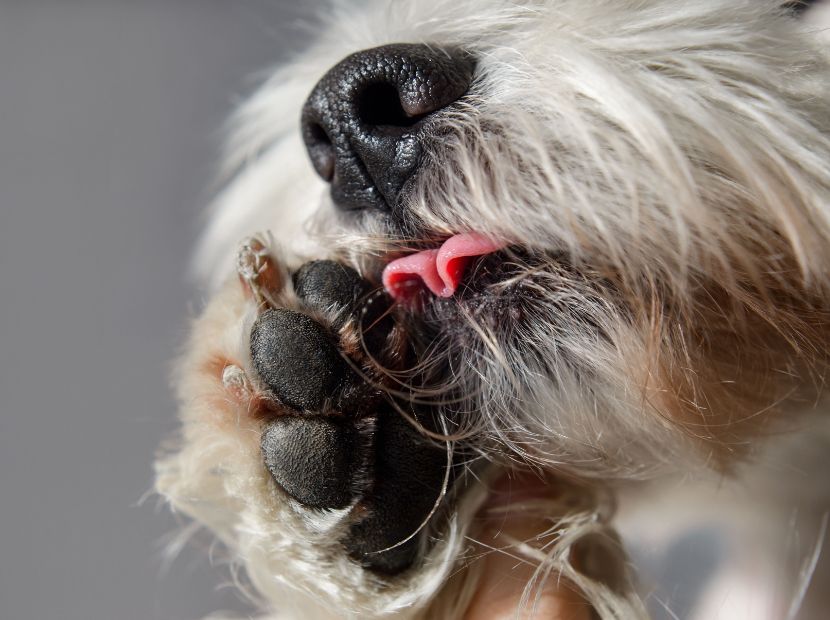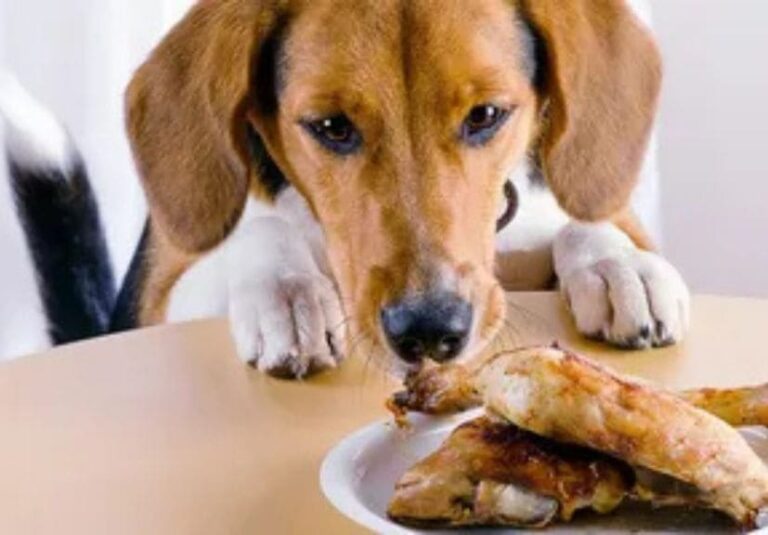12 Reasons For Dog Nail Biting
Discover the possible reasons behind your dog’s nail-biting habit. From simple grooming to underlying health or behavioral issues, understanding the cause is key to finding a solution.
Normal Grooming Behavior
Some dogs bite their nails as a part of their grooming process. Dogs may chew on their nails to keep them neat or to remove damaged or loose ones, similar to how cats groom. In this case, occasional nail biting is usually not a reason for alarm. However, it could be worth investigating further if the conduct becomes out of control.
Stress or Anxiety
Our pet dogs face various health problems, including anxiety. When dogs are nervous or worried, they may bite their nails. Dogs who exhibit anxiety symptoms may pace, whine, or bite their nails. Common triggers include loud noises, separation anxiety, and environmental changes. A dog that chews its nails at night may be experiencing anxiety or restlessness.
Boredom or Habit
Nail biting can become repetitive due to a lack of mental stimulation. Nail biting is one recurrent habit resulting from a lack of mental stimulation. Ensure your dog gets enough toys, exercise, and socialization to help reduce boredom-related behaviors.
Skin Rashes or Allergies
You must know that dog allergies are common and can be allergic to each other and other animals, even cats. They may bite their nails to relieve itching caused by allergies or skin irritations. Typical allergies include flea bites, pollen, and certain foods. If your dog is overly chewing its nails, it’s crucial to see a veterinarian to determine and treat any underlying allergies or skin issues.
Overgrown Nails
Dogs with overgrown nails may bite you to trim them shorter since they are painful. Cutting your nails regularly to avoid irritation and even harm is essential. Your dog may try to bite you when trimming its nails if they are too long and causing pain.
Pain or Damage
Dogs usually fight each other, damaging their nails and other body parts, which might result in dog nail biting. When dogs are hurt, or in pain, they may bite their nails. This can result from a paw injury, a nail bed infection, or a damaged nail. It’s critical for your dog’s health to routinely examine their paws and nails for indications of damage or pain.
Obsessive-Compulsive Disorder (OCD)
Dogs that are obsessive-compulsive may exhibit excessive nail biting, among other habits.OCD in dogs can be triggered by anxiety, stress, or genetic factors. Dog OCD can be managed and treated with the assistance of a behavioral consultant or veterinarian.
Behavior Seeking Attention
Because dogs are intelligent, they can determine what actions attract their owners’ attention. For instance, if a dog learns that chewing its nails gets attention, it might continue doing it. Instead, giving positive reinforcement to alternative, desired actions is critical.
Dietary Deficiencies
Certain dietary deficits might result in behaviors such as nail biting. A deficiency in essential nutrients in your dog’s diet can affect their nails, coat, and skin. See a veterinarian to verify that your dog’s diet is well-balanced and fits its nutritional needs. This will assist in solving the problem.
Viruses or Parasites
Nail biting can result from discomfort brought on by parasites like fleas and ticks, as well as diseases in the nail bed. Appropriate parasite control and routine veterinarian examinations can help deter these problems. Seek immediate veterinary attention if you notice symptoms like redness or swelling, which may indicate an infection.
Compulsive Behavior Due to Genetics
Dogs’ obsessive habits, such as gnawing their nails, may be influenced by genetics. Some breeds may be more likely to exhibit these traits. While you can’t change your dog’s genetic makeup, you can manage and reduce obsessive habits through training.
Insufficient Nail Maintenance
Proper nail care is essential to prevent pain and nail-biting. Regularly cutting your dog’s nails may prevent them from being painful and overgrown. It’s crucial to approach nail trimming with patience and care because it might be out of fear or discomfort if your dog attacks you while paring your nails.
Problems Dogs Face Before and After Biting Their Nails
Dogs that bite their nails may experience pain or discomfort both before and after. Excessive nail biting can cause wounds or infections, and overgrown nails can make walking uncomfortable and difficult. These disorders may be avoided by taking regular care of your nails and taking care of any underlying concerns.
How to Care for Dog Nails to Prevent Troubles?
Regular nail trimming is crucial for your dog’s comfort and health. Here’s a step-by-step guide to safely trimming your dog’s nails at home:
- Use proper dog nail clippers or grinders.
- Gently hold your dog’s paw and isolate the nail.
- Trim a small portion of the nail at a time, avoiding the quick (the sensitive part of the nail).
- Use treats and positive reinforcement to make the experience pleasant for your dog.
If you’re unsure or uncomfortable trimming your dog’s nails, seek help from a professional groomer or veterinarian.
Common Dog Nail Problems
Ingrown nails, enlarged nails, and infections in the nail beds are common nail issues in dogs. Limping, redness, swelling, or discharge from the nail bed are some of the symptoms associated with these problems. If you notice these signs, seeking veterinary care to treat and prevent further issues is crucial.
Conclusion
Dog nail biting occurs for various reasons, including routine grooming or underlying medical conditions. If you know the many causes and practice regular nail care, you can help your dog keep healthy nails and avoid discomfort. Besides, if you notice any signs of discomfort or illness, consult a veterinarian for an accurate diagnosis and treatment plan. If you have any questions regarding dog nail biting behavior or want to add to our knowledge, you are always welcome to PetJazeera since we love to learn!
Is it unsafe for my dog to bite their nails?
Dogs shouldn’t chew on their feet excessively as it can worsen health issues like anxiety or allergies. “It’s usually a sign of discomfort, so it’s best to have your vet take a quick peek,” said Dr. Spencer. If your dog chews its nails often, speak with your veterinarian to find out why.
What’s the best way to stop my dog from biting their nails?
If your pet bites its nails frequently, speaking with your veterinarian is the best way to determine the cause and the best treatment course. However, there are a few things pet owners may do to see if they can help their cats feel better.
How can I determine whether my dog is chewing their nails out of boredom or anxiety?
Other nervous behaviors, like pacing, whimpering, or shaking, accompany nail-biting associated with anxiety. If your dog isn’t mentally stimulated or is left alone for long periods, it may bite its nails due to boredom. Offering many exercises, mental challenges, and relaxing methods can be beneficial.
It terrifies my dog to use nail clippers. How can I lessen the tension of the situation?
The important thing is to reinforce positive behavior. Without using clippers, begin by softly touching your dog’s paws. When your dog behaves calmly, reward it with treats and gradually introduce the clippers. It’s crucial to be persistent and patient.




